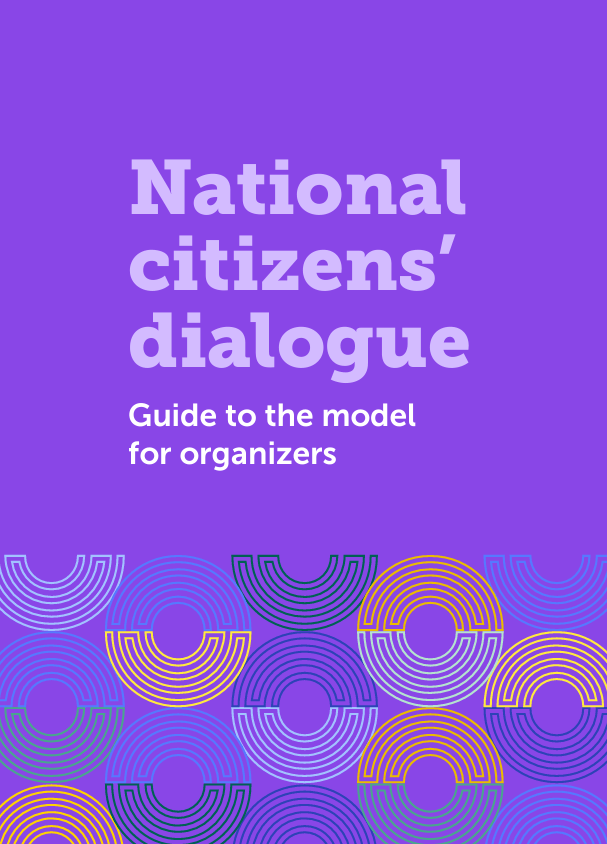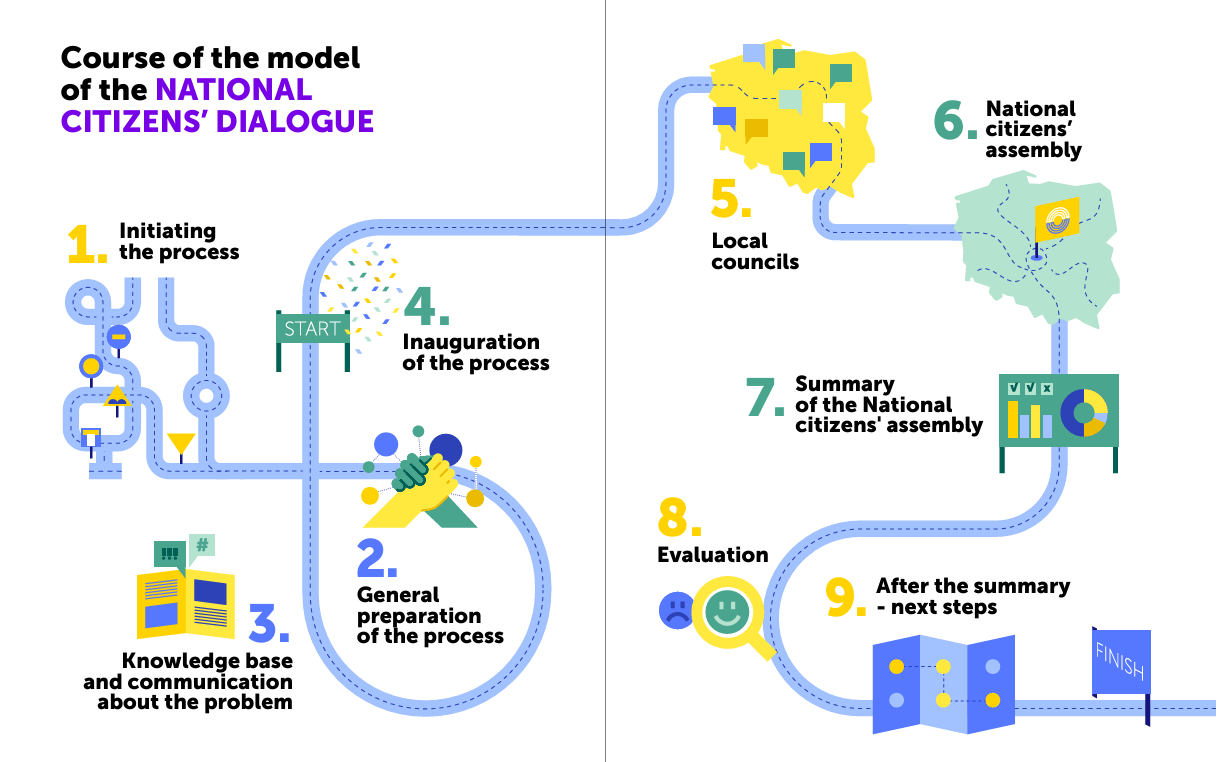
National citizens’ dialogue. Guide to the model for organizers
„It seems that we have crossed a certain point of no return. We believe that the enthusiasm and attachment to deliberative techniques among decision-makers, social organizations and our society will only grow. And that is what we wish for!” – Kuba Wygnański, President of the Shipyard Foundation, writes in the publication’s introduction.
The Shipyard Foundation team conducted an evaluation of the Civic council on Energy cost process conducted in 2022, and in the guide they share their own and their interviewees’ reflections who took part in the process. The guidebook will primarily be helpful to organizers of the National Citizens’ Dialogue.
Carrying out the proposed model requires linking together many different elements (which is challenging due to their complexity) and working with multiple communities. „Each process requires the construction of a new “coalition” around the thematic issue. This is quite tedious work, but without it the entire project would fail”- Kuba Wygnański explains.
That’s why this guide describes in detail, step by step, the 8 stages of the process – from initiation, general preparations, inauguration, through local councils and combining them with a national citizens’ assembly, to the summary of the council. The publication ends with conclusions – can anything be done differently? For this guide is a set of guidelines, not a ready-made trail – it is still a long hike to azimuth.

„We learned a lot about energy costs at the Civic council on energy costs. The publication you are reading is a presentation of an idea for conducting a national discussion with citizens. We have collected and described our own and foreign experiences as well as the conclusions we drew together with the people involved in the process we are describing. You will find there links to interesting articles, knowledge bases, descriptions of processes similar to ours, and to source texts that we had analysed and from which we drew information ourselves. We have also collected advice on communication and evaluation, as well as the most valuable tips – below, you will find graphic highlights to help you find particular fragments. We are trying to show a certain way of thinking as well as actions that follow it and their sequence. The described national process resembles a multi-variant model, the final appearance of which is to be decided by its initiator and implementer.” – write the guide’s authors.
„Deliberative processes, such as the proposed model of the National citizens’ dialogue, also have one very important feature, particularly significant in the face of deep polarization in Poland (although it is worth emphasising here that this is a phenomenon that goes well beyond Poland and is of a somewhat structural nature). Namely, they have enormous de-escalation and depolarization potential. The citizens’ assembly is of fundamental value in this respect. When recruiting for the assembly, appropriate proportions of education, age, gender and place of residence (in line with the characteristics of the population in Poland) need to be maintained, but political party preferences of future participants are not checked. While sitting at the tables where they talk, the participants do not know which “tribes” or bubbles they belong to”
| Authors: | Maria Belina Brzozowska, Maria Jagaciak, Kacper Lubiewski, Kuba Wygnański współpraca: Jan Herbst, Aleksandra Pierścińska, Katarzyna Wójcikowska-Baniak, Magdalena Geringer-Nurczyńska, Maria Perchuć-Żółtowska |
| Title: | Ogólnopolska narada obywatelska. Przewodnik po modelu dla organizatorów i organizatorek |
| Publisher: | Fundacja Stocznia, 2024 |